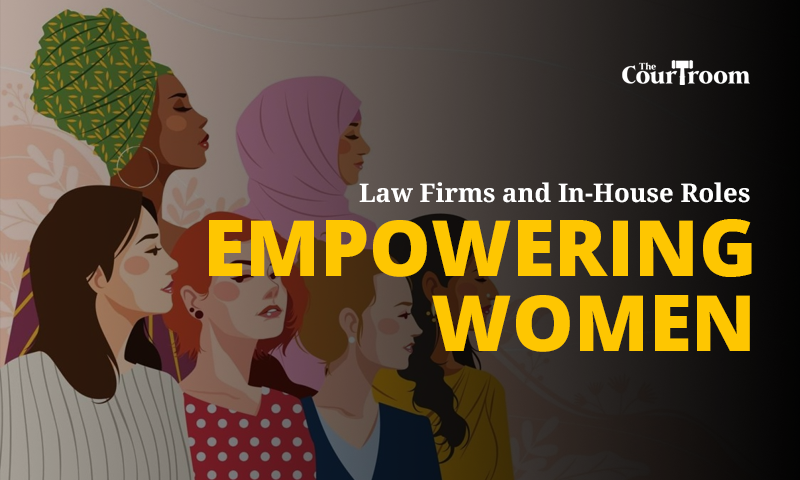The legal profession, traditionally male-dominated, has witnessed significant strides toward gender equality in recent years. However, the journey toward empowering women in legal practice—both in law firms and in-house roles—continues to face challenges. This article explores the current landscape, highlights areas of improvement and decline, and proposes strategies to further empower women in legal roles globally and in India.
Current Landscape of Women in Legal Practice
Global Perspective
Globally, women have made considerable progress in entering the legal profession. According to a 2020 report by the International Bar Association, women now make up 50% or more of law graduates in many countries. However, this representation diminishes at higher levels of legal practice. For example, women hold only 27% of partnership positions in law firms worldwide. The disparity is also evident in in-house legal roles, where women are underrepresented in general counsel positions, particularly in large corporations.
Indian Context
In India, the situation mirrors global trends with some unique challenges. Women constitute approximately 45% of law students and young lawyers, but their representation drops sharply in senior positions. A 2019 study by the Bar Council of India revealed that women account for only 10-15% of senior advocates in the Supreme Court and High Courts. The scenario is slightly better in in-house roles, where women occupy about 30% of general counsel positions, according to a 2021 survey by the Indian Corporate Counsel Association.
Barriers to Women’s Advancement in Legal Practice

Several barriers impede the progress of women in legal roles:
- Work-Life Balance: The demanding nature of legal work often clashes with personal responsibilities, disproportionately affecting women.
- Bias and Stereotypes: Gender bias and stereotypes persist, influencing hiring, promotion, and case assignments.
- Lack of Mentorship and Sponsorship: Women often lack access to mentors and sponsors who can advocate for their advancement.
- Organizational Culture: A lack of inclusive and supportive workplace cultures can hinder women’s career progression.
Strategies to Empower Women in Legal Practice
Implementing Flexible Work Policies
Flexible work arrangements can significantly aid in balancing professional and personal responsibilities. Law firms and corporations should offer options such as remote working, flexible hours, and part-time roles. Studies have shown that firms with robust flexible work policies not only retain more female talent but also see increased productivity and job satisfaction among all employees.
Addressing Bias and Promoting Inclusive Culture
Organizations must actively work to eliminate gender bias and promote an inclusive culture. This includes regular bias training, transparent evaluation criteria, and promoting a culture where diverse voices are heard and valued. Implementing blind recruitment processes can also help in minimizing bias during hiring.
Enhancing Mentorship and Sponsorship Programs
Mentorship and sponsorship are crucial for career development. Law firms and companies should establish formal mentorship programs where senior lawyers guide and support the career growth of junior women lawyers. Sponsorship programs, where influential leaders advocate for high-potential women, can also bridge the gap to leadership roles.
Promoting Gender Equity in Leadership Roles
To set an example and drive change, law firms and corporations should commit to gender equity in leadership roles. Setting measurable targets for female representation at partner and executive levels and holding leaders accountable for meeting these targets can be effective. Additionally, promoting transparent career progression paths ensures that women see a clear trajectory to leadership roles.
Supporting Networking Opportunities
Networking is vital for career advancement in the legal field. Organizations should facilitate networking opportunities specifically designed for women. This can include women-focused legal conferences, forums, and peer networking groups, which help women build relationships, share experiences, and gain visibility.
Case Studies of Successful Initiatives
- Baker McKenzie: The global law firm has implemented a comprehensive diversity and inclusion strategy, resulting in women holding 40% of leadership roles globally.
- General Electric: GE’s Women’s Network has been instrumental in increasing female representation in senior legal roles across the company.
- Infosys: The tech giant has a robust diversity program, and its legal department is led by a woman, setting a precedent for female leadership in in-house legal roles.
Empowering women in legal practice requires a multifaceted approach, addressing structural, cultural, and personal barriers. By implementing flexible work policies, addressing bias, enhancing mentorship programs, promoting gender equity in leadership, and supporting networking opportunities, both law firms and in-house legal departments can foster a more inclusive and equitable environment. These efforts not only benefit women but also contribute to the overall effectiveness and diversity of the legal profession.
Share your news, articles, deals, columns, or press releases with us! Click the link to submit and join our platform today.



